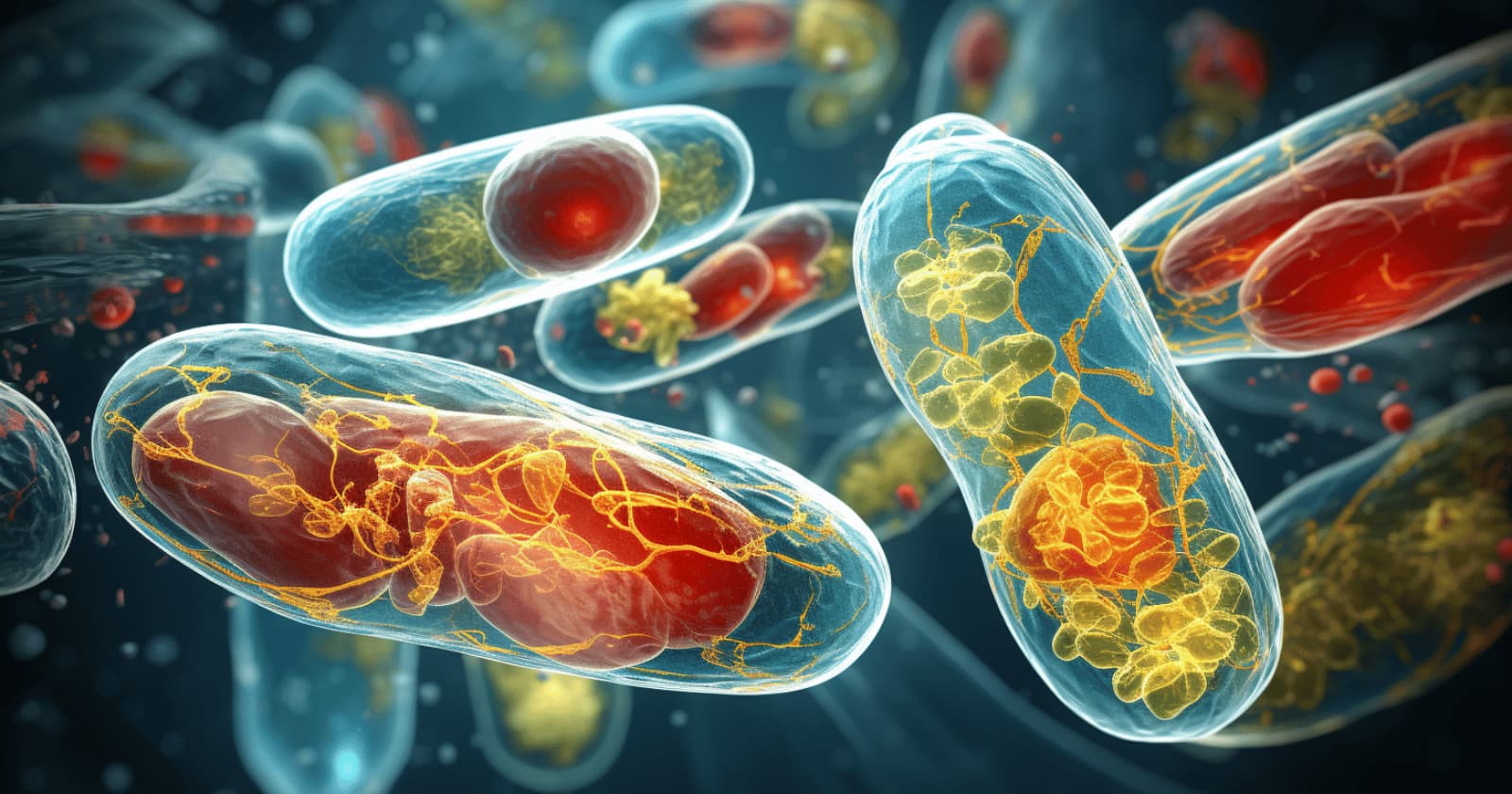NAD is more than just a molecule – it’s a powerhouse for your health. NAD, found in the body, is essential for cellular metabolism and DNA repair. Although its levels tend to decline with age, you can naturally increase NAD levels through simple lifestyle choices or supplements.

Key takeaways:
- NAD is an umbrella term for NAD+ and NADH. NAD+ is a molecule found in living cells. It supports overall health and is crucial for energy production and DNA repair.
- NAD has numerous health benefits, such as enhancing energy, potentially slowing aging, supporting cognition, protecting the heart, and possibly preventing cancer.
- As we age, our NAD levels tend to decrease, impacting our well-being.
- Natural ways to boost NAD include eating a balanced diet, regular exercise, and reducing calorie intake.
- NAD supplements are available in a variety of forms. It’s always best to check with your healthcare provider before taking any new medication or supplements.
Whether you’re seeking to enhance your energy levels, slow down the effects of aging, support cognitive function, or potentially prevent cancer, a fascinating molecule might hold the answers you seek: NAD (nicotinamide adenine dinucleotide).
But what exactly is NAD, and is it important for our health?
Below, we’ll explore the intricacies of NAD, its potential benefits, and ways to increase NAD levels naturally.
What is NAD?
NAD, short for nicotinamide adenine dinucleotide, is a broad term used to describe NAD+ and NADH.
NAD+ is a molecule that naturally occurs in the body and is used during many cellular processes, such as metabolism (how the body breaks down food for energy) and DNA repair. NAD+ is known as the oxidized form and is the receiver of electrons.
When NAD+ receives an electron, it becomes NADH (NAD plus hydrogen), known as the reduced form. The electron transfers between NAD+ and NADH is important for many chemical reactions in our cells that produce and use energy.
Scientists generally opt to use either NAD+ or NADH due to the specificity of each term in describing the molecule being discussed. Throughout the rest of this article, we will use the more commonly used term NAD.
What Does NAD Do?
NAD is a key player in energy metabolism. Specifically, NAD helps convert glucose into adenosine triphosphate (ATP), the primary energy source for cells. During this process, NAD+ is converted to NADH, which then passes electrons to the electron transport chain, ultimately generating ATP.
In addition to its role in energy metabolism, NAD is also involved in DNA repair and gene expression. One of the enzymes involved in repairing DNA damage is PARP (Poly-ADP Ribose Polymerase). PARP requires NAD as a cofactor. When DNA is damaged, PARP is activated and consumes NAD to facilitate the repair process.
NAD is a vital cofactor for sirtuins, a group of enzymes involved in gene expression. Sirtuins rely on NAD to function properly, and the availability of NAD influences their activity, thus impacting cellular processes linked to aging and disease.
As we age, our bodies become less efficient at producing NAD. This inefficiency can lead to age-related issues and a variety of diseases.
Low NAD levels have been linked to several age-related diseases, including Alzheimer’s disease, Parkinson’s disease, and cancer. When NAD levels decrease, it can affect the function of mitochondria (the cell’s powerhouse), reduce energy production, and impair DNA repair abilities.
What Are the Health Benefits of NAD?
NAD has been shown to have numerous health benefits, including:
- Boosting energy levels: NAD plays a crucial role in cellular metabolism and energy production, helping convert food into usable energy (ATP). By supporting energy production, NAD can enhance overall energy levels and improve physical performance.
- Potentially slowing aging: Our bodies produce less NAD as we age, which may contribute to age-related decline. Boosting NAD levels through supplements or lifestyle interventions may slow down certain age-related changes.
- Supporting cognitive function: NAD may have neuroprotective effects. It may help to protect neurons from damage caused by oxidative stress and inflammation, improving cognitive abilities.
- Protecting against cardiovascular problems: NAD may positively impact the cardiovascular system. It may help regulate blood flow and contribute to maintaining optimal heart health.
- Potentially preventing cancer: NAD plays a role in DNA repair and cell cycle regulation, which is essential for preventing cancerous cell development. While more research is needed, NAD’s involvement in these processes suggests it may have a potential role in cancer prevention.
- Maintaining a healthy weight: NAD is involved in metabolic processes, including glucose and lipid metabolism. By supporting optimal metabolic function, NAD can help with healthy weight maintenance.
What About NAD Supplements?
The body produces NAD, but our natural production may decline as we age. Taking NAD supplements is an option to support the body’s biological processes and increase NAD levels.
NAD supplements are formulated to provide the body with precursors – molecules that the body can use to convert into NAD – or direct forms of NAD that can be readily absorbed and used.
Common forms of NAD precursors are:
- Nicotinamide riboside (NR)
- Nicotinamide mononucleotide (NMN)
- Nicotinic acid (NA)
- Nicotinamide (NAM)
These supplements come in different forms, including capsules, powders, and intravenous therapy.
Additionally, some foods, such as broccoli, cabbage, and cucumbers, contain small amounts of NMN that can help to support the body’s natural production of NAD.
What Are the Side Effects of NAD Supplements?
Human studies on NAD supplements have not reported any severe side effects so far. It’s also important to remember that the Food and Drug Administration (FDA) does not regulate these supplements. As a result, there can be limited supervision over the amount and quality of active ingredients in NAD supplements.
Related: What is the Recommended NAD Dosage?
NAD supplements are generally considered safe when administered under the guidance of a medical professional. As research continues, exercising caution and consulting with healthcare professionals when considering NAD supplementation is a good idea.
Ways to Increase NAD Levels Naturally
While supplements are available, you may implement the following strategies to increase NAD levels naturally:
- Eat a balanced diet: Foods that contain NAD precursors, such as tryptophan and NMN, can help to support the body’s natural production of NAD. Foods rich in these nutrients include turkey, cabbage, broccoli, and avocado.
- Engage in regular exercise: According to research, aerobic exercises and strength training have been shown to increase NAD levels.
- Restrict calorie intake: Studies have shown that reducing calories may increase NAD levels. Aim to consume fewer calories and choose nutrient-dense foods. Adopting a balanced and mindful approach to eating may promote NAD production.
Incorporating these natural methods into a healthy lifestyle may help support the body’s natural production of NAD and promote overall health and wellness.
FAQs:
Are NAD supplements effective?
NAD supplements have shown promise in increasing NAD levels in the body, but further research is being conducted to fully understand their effectiveness and potential long-term benefits.
Are NAD infusions safe?
NAD infusions are generally considered safe when administered under medical supervision. However, talking to a healthcare professional to assess individual circumstances and potential risks is important before undergoing NAD infusion therapy.
Why is NAD important?
NAD is important because it plays a crucial role in cellular energy production, DNA repair, and regulating various cellular processes, contributing to overall well-being.
Does NAD work as an anti-aging supplement?
Some evidence suggests that NAD may have anti-aging effects, as it plays a crucial role in cellular metabolism and energy production. However, more research is needed to understand its potential benefits for anti-aging fully.
What’s the difference between NMN, NAD, and NADH?
NMN (nicotinamide mononucleotide) is a precursor that can be converted into NAD+ (nicotinamide adenine dinucleotide), the oxidized form of NAD. On the other hand, NADH is the reduced form of NAD that carries electrons for energy production in cellular processes.
Does NAD work for addiction?
Some studies have shown that increasing NAD+ levels might be a way to help manage addictive behaviors, reduce cravings, and ease withdrawal symptoms in people struggling with food addiction and substance abuse. However, more research is required to determine how effective it is and how it should be used in addiction treatment.
Final Thoughts
NAD may offer exciting possibilities for health and well-being, such as boosting energy, potentially slowing aging, supporting cognitive function, and possibly preventing cancer. Consuming a balanced diet rich in NAD precursors, regular exercise, and reducing calorie intake may boost the body’s natural production of NAD. While NAD supplements can be an alternative to increase NAD levels, they should not be used as a substitute for medical treatment or professional advice from a healthcare provider.

Maggie Aime, MSN, RN
Maggie Aime, MSN, RN is a freelance health, wellness, and medical personal finance writer. Her extensive nursing experience includes oncology, kidney transplant, cardiology, and home health. Read more about her work at www.thewritern.com.
References
- Anderson et al. 2017. Metabolic control by sirtuins and other enzymes that sense NAD+, NADH, or their ratio.
- Braidy et al. 2020. Sobriety and Satiety: Is NAD+ the Answer?
- Covarrubias et al. 2021. NAD+ metabolism and its roles in cellular processes during ageing.
- de Guia et al. 2019. Aerobic and resistance exercise training reverses age-dependent decline in NAD+ salvage capacity in human skeletal muscle.
- Franczyk et al. 2021. Importance of Adipose Tissue NAD+ Biology in Regulating Metabolic Flexibility.
- Imai et al. 2014. NAD+ and sirtuins in aging and disease.
- Lin et al. 2021. NAD+ and cardiovascular diseases.
- Navas et al. 2021. NAD+ metabolism, stemness, the immune response, and cancer.
- Poljsak et al. 2020. Healthy Lifestyle Recommendations: Do the Beneficial Effects Originate from NAD+ Amount at the Cellular Level?
- Pramono et al. 2020. NAD- and NADPH-Contributing Enzymes as Therapeutic Targets in Cancer: An Overview.
- Radenkovic et al. 2020. Clinical Evidence for Targeting NAD Therapeutically.
- Reiten et al. 2021. Preclinical and clinical evidence of NAD+ precursors in health, disease, and ageing.
- Wang. 2014. Molecular Links between Caloric Restriction and Sir2/SIRT1 Activation.
- Zapata-Pérez et al. 2021. NAD+ homeostasis in human health and disease.
- Zhao et al. 2021. NAD+ improves cognitive function and reduces neuroinflammation by ameliorating mitochondrial damage and decreasing ROS production in chronic cerebral hypoperfusion models through Sirt1/PGC-1α pathway.
